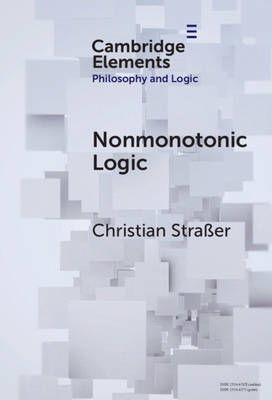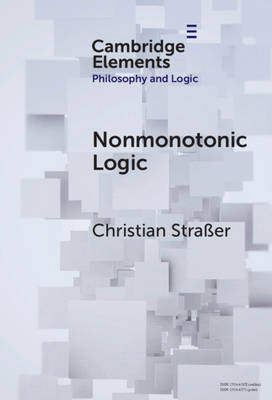
- Afhalen na 1 uur in een winkel met voorraad
- Gratis thuislevering in België vanaf € 30
- Ruim aanbod met 7 miljoen producten
- Afhalen na 1 uur in een winkel met voorraad
- Gratis thuislevering in België vanaf € 30
- Ruim aanbod met 7 miljoen producten
Zoeken
€ 112,95
+ 225 punten
Uitvoering
Omschrijving
Nonmonotonic logics serve as formal models of defeasible reasoning, a type of reasoning where conclusions are drawn absent absolute certainty. Defeasible reasoning takes place when scientists interpret experiments, in medical diagnosis, and in practical everyday situations. Given its wide range of applications, nonmonotonic logic is of interest to philosophy, psychology, and artificial intelligence. This Element provides a systematic introduction to the multifaceted world of nonmonotonic logics. Part I familiarizes the reader with basic concepts and three central methodologies: formal argumentation, consistent accumulation, and semantic methods. Parts II-IV provide a deeper understanding of each of these methods by introducing prominent logics within each paradigm. Despite the apparent lack of unification in the domain of nonmonotonic logics, this Element reveals connections between the three paradigms by demonstrating translations among them. Whether you're a novice or an experienced traveler, this Element provides a reliable map for navigating the landscape of nonmonotonic logic.
Specificaties
Betrokkenen
- Auteur(s):
- Uitgeverij:
Inhoud
- Aantal bladzijden:
- 136
- Taal:
- Engels
- Reeks:
Eigenschappen
- Productcode (EAN):
- 9781009598460
- Verschijningsdatum:
- 13/11/2025
- Uitvoering:
- Hardcover
- Formaat:
- Genaaid
- Afmetingen:
- 152 mm x 229 mm
- Gewicht:
- 353 g

Alleen bij Standaard Boekhandel
+ 225 punten op je klantenkaart van Standaard Boekhandel
Beoordelingen
We publiceren alleen reviews die voldoen aan de voorwaarden voor reviews. Bekijk onze voorwaarden voor reviews.







